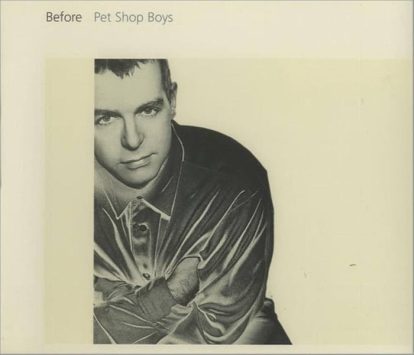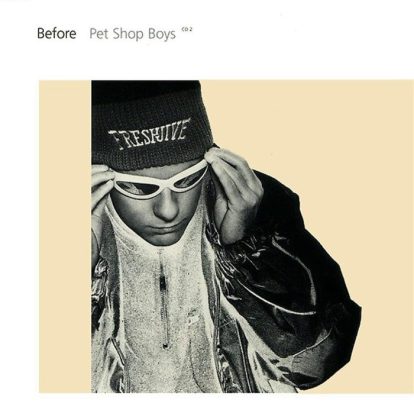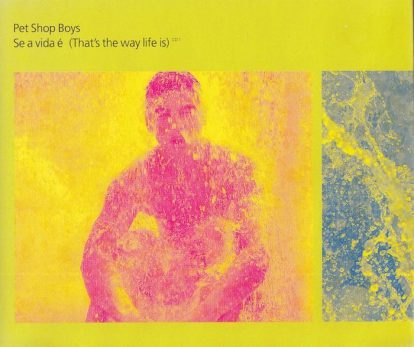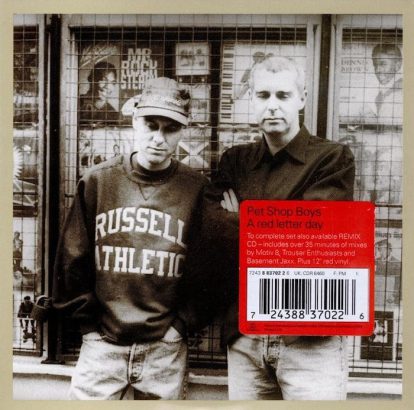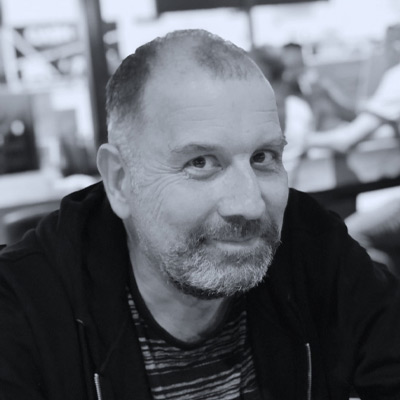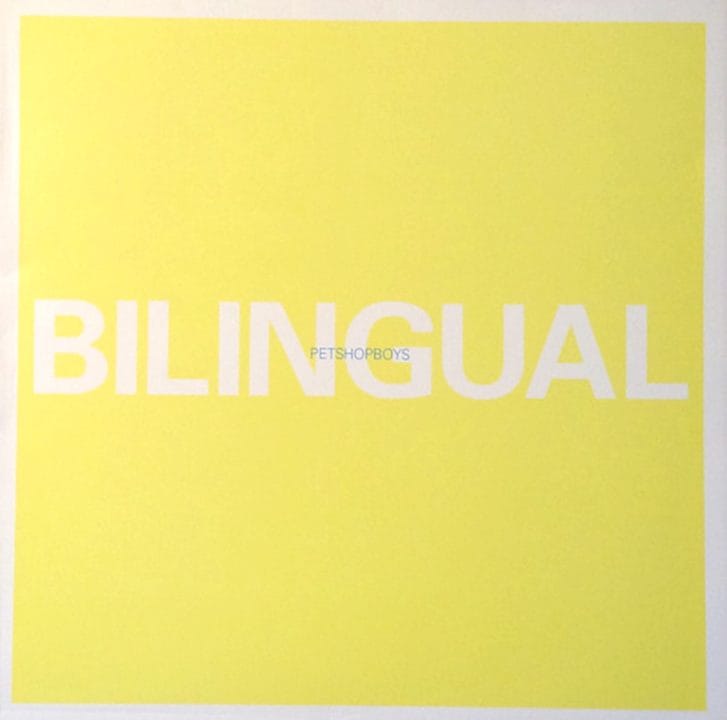
PSB were in full Latin flow for their sixth studio album… while it might not have spawned the poppiest music, Pet Shop Boys’ Bilingual certainly gave us some fantastic pop culture moments…
1996’s Bilingual was the first Pet Shop Boys album not to reach the Top 3 in the UK Album Chart, and its four proper single releases fared even worse in the chart stakes, with none reaching the Top 5. But there’s a lot to like about the album, not least its slick sound, helped in no small part by producer Chris Porter – at the time, George Michael’s right hand studio man – who was drafted in for many tracks. And then there was the album’s promotion, which saw the duo appear on some legendary 90s UK TV shows to push the record, including a debut appearance on Chris Evans’ Friday night show TFI Friday – during which Chris Lowe was as vocal as we’ve ever seen him – and then a classic episode of This Morning, which was as awkward as you might expect (more of that later).
As well as those TV shows, the 90s was also about Britpop and dance music, of course, and while previous album Very had perhaps trodden the latter path, the duo were in need of another direction for album number six. Bilingual, then, became the band’s first to embrace the sound of south America.
South American Sound
“It’s very different from our previous albums in terms of the musical style – it’s got a lot of Latin influenced music on it,” Neil Tennant said of the theme, although, in truth, the album could be seen as a standard Pet Shop Boys album with Latin beats on top, mostly provided by the Glasgow-based group SheBoom.
The Latin theme was inspired by a trip the duo made to a bar in New York called the Sound Factory, an experience that not only shaped the album, but the PSB live show. “They had all these guys playing samba drums, this incredible noise,” Neil told Paul Du Noyer for Q magazine’s tenth anniversary issue. “They had these guys dancing on leaves, wearing only flags to cover their modesty. We took the whole idea for our show. A few months later we saw this Glaswegian group SheBoom, these women who make their own samba drums in a huge council estate. They were brilliant. So all these things came together. We just like the energy and the noise.”
Producer Chris Porter’s involvement came by chance – and as a result of George Michael’s new-found independence. Porter had been working as Michael’s engineer since the Wham! days, and had also worked with boybands including Take That. But as studio technology improved and George became more proficient in the studio, Chris found himself literally sitting outside the recording sessions – in this case at Sarm West studios – waiting for George to finish so he could get more involved.
Latin Rhythms
“I’d go outside and I’d be watching daytime TV,” Chris told recordproduction.com of his time working with George. “I was thinking, ‘I’m getting paid handsomely for doing this’, but I was getting so bored. It was during [the George Michael album] Older and I’m thinking, ‘I’m too old for this’, so I said to George, ‘I’m going mad out here’ so went off to do something else for a bit.”
That ‘something else’ turned out to be a chance meeting with PSB at the same studio and so Chris started working with the duo on Bilingual.
“I don’t think we were cut out musically to work with one another,” Chris said of getting the Bilingual gig. “But I think it was because I’d produced [Take That’s] Back For Good and Neil thought it was a lovely record. They [PSB] really do open themselves out and Neil is such an interesting person to work with, one of the most incisive minds that I have come across in the music business.”
Being Boring
In the studio was engineer Pete Gleadall, who offered a fascinating insight into Bilingual’s recording and the duo’s writing process in a 1996 Sound On Sound interview.
“I get sounds for them, record what they do and manipulate it,” Pete revealed. “Chris [Lowe] will give a specific list of things he wants: a French horn, a Russian choir, an exploding boiler. Then, if we’re starting with a rhythm loop, I sit there recording everything he does. He’ll play stuff in over the top – percussion, drums, bassline and chords – until he’s finished a section. Neil will listen, and maybe ask to hear the chords in a different order. That might then inspire Neil to write another new section – their songwriting partnership is very collaborative.”
The album came together at the end of 1995 and start of 1996 at Sarm West, with some tracks recorded at Axis and Bass Hit in New York. For its promotion, the duo decided to push the boat out, making appearances on some of the biggest TV shows of the time, including a quite incredible – in hindsight – appearance on Chris Evans’ TFI Friday, during which Neil revealed how the duo had met in the first place.
“It was in a record shop, right?” its bespectacled host asked. “Yes, in 1981,” Neil replied. “Yeah it’s still there, Chelsea Records. He [Chris Lowe] was buying something at the counter and I came in. I’d just bought a synthesizer and I wanted to play it through my record player and they made a lead for me. While I was hanging around, he was there and we started talking about synthesizers. I think he [Chris] made a joke or something. Afterwards we wrote West End Girls.”
That’s The Way Life Is
Neil also revealed that Bilingual very nearly wasn’t the title of the new album: “We nearly called it ‘That’s The Way Life Is’, but there was such an outcry from people who knew us that we were going to break this line of one word [album] titles, that we decided to call it Bilingual.”
Chris Lowe was also surprisingly vocal during the TFI interview, professing his love – with no trace of irony – for watching daytime television, and wanting to appear on the chat show This Morning, hosted by Richard Madeley and Judy Finnigan. With such a public wish, there was almost no doubt that it would come to pass and, sure enough, a few weeks later the duo found themselves facing a barrage of banal and often cringe-worthy questions from UK TV’s finest chat show couple to promote the single Red Letter Day from Bilingual.
Riding The Big One
After discussing going to watch a Mike Tyson and Frank Bruno boxing match and visiting a gay club in Moscow, Judy turned to Neil and asked: “You’re very different you two, do you do all the talking?” to which Neil replied, “Only in interviews, if you’d recorded us in the dressing room, I wasn’t really saying anything and Chris was.”
Judy’s line of questioning then got even more ‘direct’: “What is it about you two? He [Neil] sounds really learned and educated and artistic while you [Chris] sound…” But before she could directly insult Chris, Neil interjected with, “Well he [Chris] is the one with all the exams, not me.”
Judy was then quite shocked to find out that Chris was indeed ‘educated’ (Chris: “I’ve got a degree in Architecture”), but they then discussed Chris’ home town of Blackpool where he was bought up near the Pleasure Beach, resulting in some Richard Madeley/Alan Partridge-style brilliance…
Richard: “Have you been on The Big One?” (A fairground ride at Blackpool.)
Chris: “Yeah.”
Richard: “Have you?”
Chris: “Yeah, they’ve changed it to make the first drop, they’ve changed it…
Richard: “What to make it less frightening?”
Chris: “I don’t know why they’ve changed it, to make the curve different on the initial drop. I haven’t been on that yet as the queues were massive.”
Richard: “Yes, we still haven’t been on it. It’s that long trek up and that very first drop, that’s the one isn’t it. You can’t even see the track it’s so steep.”
The interview was then ended by the producers because it had overrun, but it’s well worth a watch, if only to see Chris actually loving being there.
Red Letter Day
Bilingual came out in September 1996 and had generally favourable reviews, and while it continued a general decline in PSB record sales, Neil maintained in the ‘making of’ documentary for the Single-Bilingual video that, “We’ve had fantastic reviews which actually we weren’t expecting on this album because it’s very different from our previous albums in terms of the musical style.”
Bilingual might not have been the highest point for PSB, but it is fascinating in retrospect. A lot of 80s bands struggled with the music climate of the 90s, feeling at odds with the Britpop fashions and trends, but Bilingual’s high points show that PSB always score well when they ignore their surroundings and do their own thing. Inconsistent, then, but some lovely moments of sheer and SheBoom brilliance.
The Songs
Discoteca
Discoteca opens Bilingual with sounds and strings straight from Please, but slips effortlessly into the 90s with some Spanish guitar and beats that could only be from that decade. Then SheBoom kick in and the album template is in place. You can understand why the Glaswegian drum collective were drafted in, such is their power and presence, greatly complementing what is a very decent and melodramatic PSB intro.
Single
The duo were so successful at coming up with parts for Discoteca that they produced second track Single at the same time, so they became a song of two halves. “They kept writing new sections,” Pete Gleadall told SOS, “and Neil wrote a new song over the end.” Indeed Single beautifully segues in thanks to those drums. “They got SheBoom in and they made a splendid racket.”
Metamorphosis
Third track Metamorphosis initially pushes too many 90s productions buttons for us, and when Neil’s unique UK rapping starts to grate, it could be the recipe for disaster. But actually with its over-the-top-brass kitsch, forthright backing vocals and disco tempo, it becomes the highest point of PSB camp on the album.
Electricity
And because Metamorphosis is so high in energy, next track Electricity suffers by dropping the tempo and mood, using just about as many samples as your average 90s sampler could throw at a track along the way.
Se a Vida é (That’s the Way Life Is)
This is another Latin flier, a Chris Porter-produced track that features the best chorus on the album and, to our mind, the best Neil vocal. He’s singing beautifully in his happy range, and helps make it one of the most joyful PSB tracks ever.
It Always Comes as a Surprise
Apparently the odd chord at the start was a happy accident, something that Chris Lowe did when he hit some notes trying to play as many as he could at random. So happy was Neil with it, that he rewrote the chords in the song so they flowed together. Works for us, as the result is a kind of ‘PSB does spy thriller theme’. Get them in to do a Bond theme, we say.
A Red Letter Day
PSB travelled to Moscow to record the Moscow Choral Academy for this as Neil tried to explain to Richard and Judy during ‘that’ interview: “I like the sound of big Russian choirs – there’s a very emotional quality to them and you can’t really get that kind of sound in Britain.”
Up Against It
Pete Gleadall explained that this was a Chris Lowe-penned idea that Neil “massaged” into a full track to fit his lyrics into – a great description of the duo’s songwriting process. It features ex-Smiths guitarist Johnny Marr, and some of the best flowing hooks on Bilingual – a late and much needed injection of pace and melody.
The Survivors
It’s a slick Chris Porter-produced track and it’s definitely classic Pet Shop Boys, but sadly The Survivors has ‘track nine’ written all over it. If PSB had made Bilingual a stronger 10-track album rather than a weaker 12, this might have been one left in the Logic Audio bin.
Before
The lead single from Bilingual is arguably PSB leaning a little too much on the then current trends, so nearly 30-years on feels like the most dated track on the album. That said, Before hit the UK Top 10 and did well in the States.
To Step Aside
Classic PSB recipe this: glorious Tennant vocals, swirling strings, quirky samples, electro beats and bass and an uplifting chorus. And you know what, for a ‘track 11’ this is a fine high point. It really should have made an earlier appearance, or closed the album…
Saturday Night Fever
…as that would have been a high point to end Bilingual on, but instead we have a largely forgettable disco closer. With Danny Tenaglia behind the controls, there are classic 90s rolling snares and an almost SAW-like production, which doesn’t do it any favours in the longevity stakes. A disappointing end to a very decent but ‘should have been shorter’ PSB album.
For more on Pet Shop Boys click here
Read More: Pet Shop Boys singles – The Top 40
Classic Pop may earn commission from the links on this page, but we only feature products we think you will enjoy.

